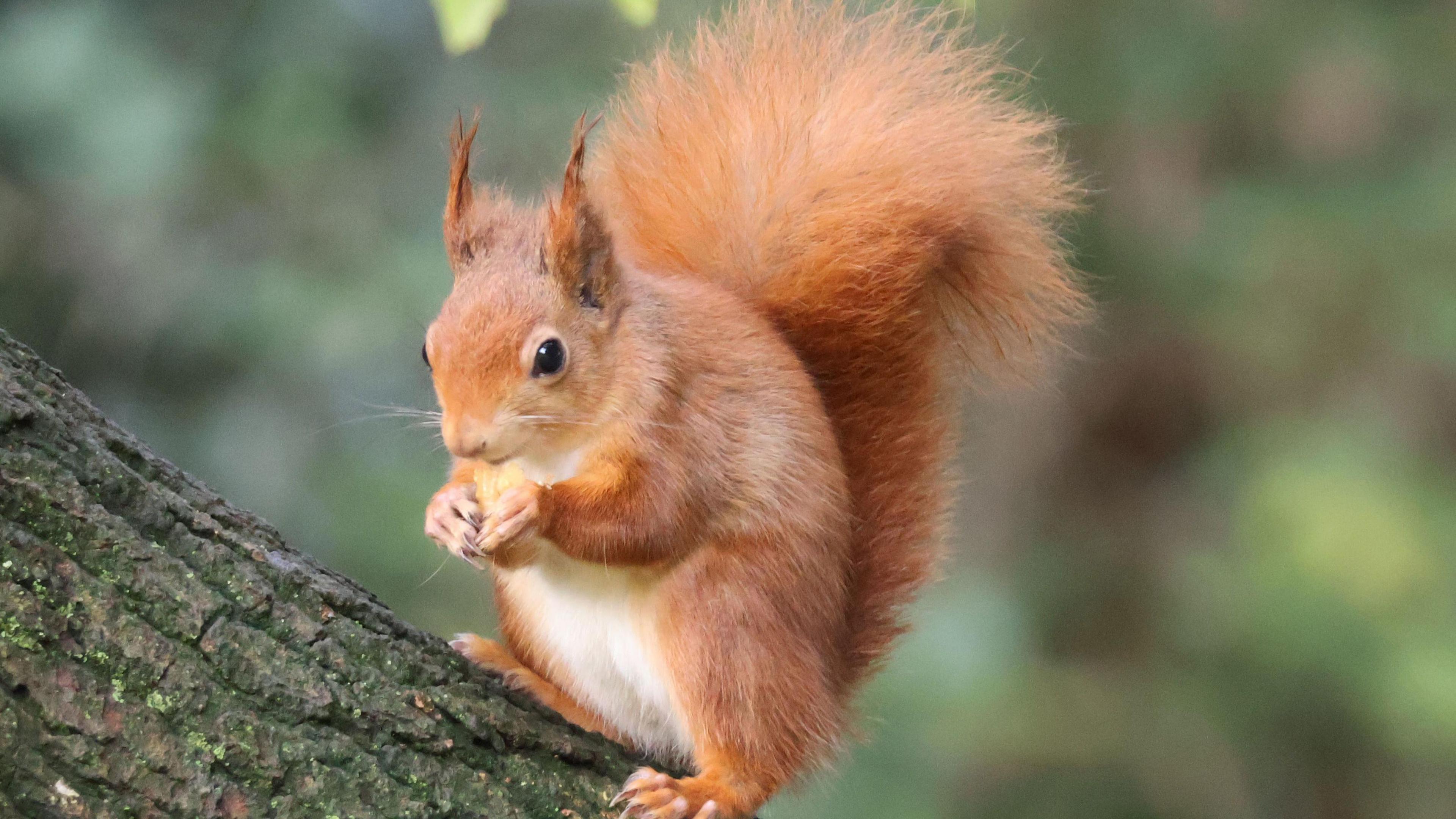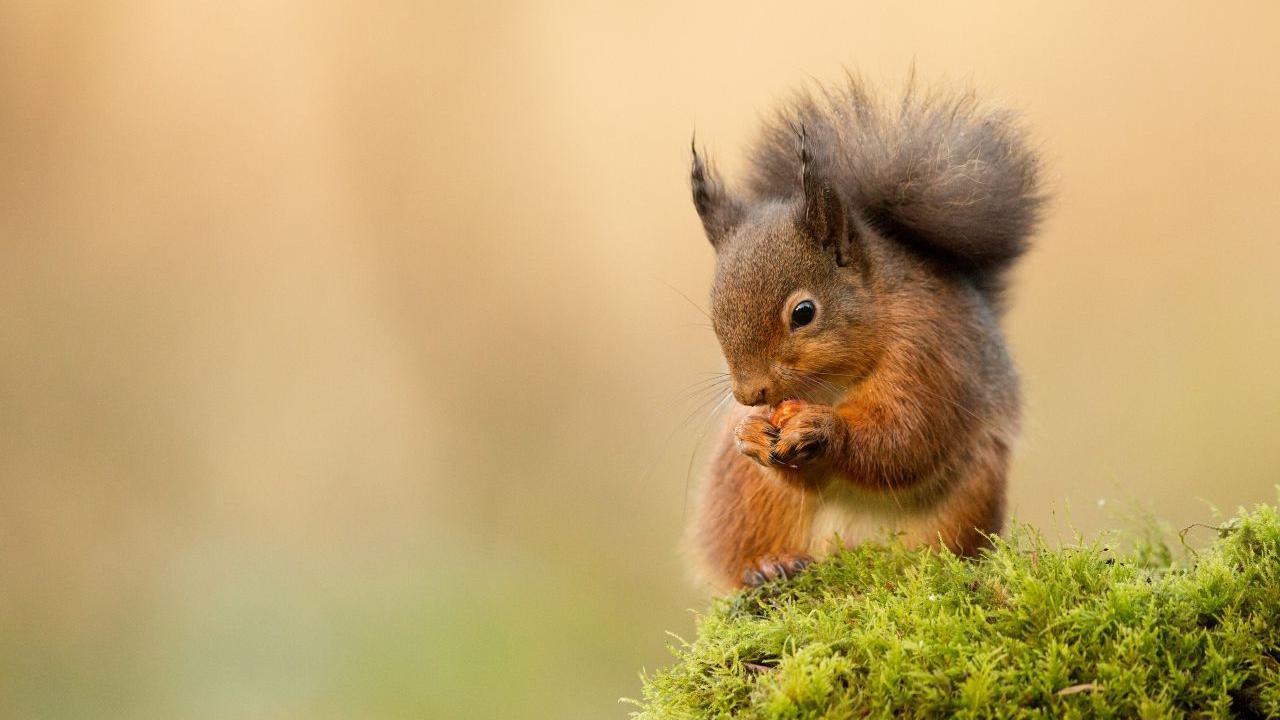Suspected squirrel pox case on Solway Coast

A suspected case of squirrel pox in a red squirrel has been found in Kirkbean
- Published
A suspected case of squirrel pox has been found in the village of Kirkbean on the Solway Coast.
Saving Scotland's Red Squirrels (SSRS) - which is part of the Scottish Wildlife Trust - said a dead red squirrel had been found in a garden and had been sent for testing to confirm the disease.
Squirrel pox is a highly contagious virus, which is often carried by grey squirrels but is deadly only to reds.
SSRS has urged everyone in the area to remove wildlife feeders from their gardens and to thoroughly clean them using an anti-viral solution.
The first known squirrelpox outbreak in Scotland occurred in 2007 near Lockerbie and since then the disease has arisen in various red squirrel populations across the south of the country.
The first death of a red squirrel north of Scotland's central belt was confirmed in Dunfermline last year following a post-mortem examination.
Two possible cases were reported near Stirling earlier this year.
Symptoms include ulcers, scabs and weeping lesions on the face, paws and genitalia, all of which can prevent reds from eating, drinking or moving.
It is usually fatal within two weeks and an outbreak can cause a substantial reduction in local populations of reds.
SSRS has reminded people to record any sightings of grey squirrels on the Scottish squirrel's website., external
Get in touch
What stories would you like BBC News to cover from the south of Scotland?
Molly Martin, SSRS communications and engagement officer, said the public could play a part in helping prevent the virus from spreading.
"The most important thing is to not touch a dead red squirrel unless you're wearing gloves," she said.
"We'll send you the information on how to make sure that the squirrel is properly packaged up and sent.
"We're working with the Royal Dick Veterinary School, and they do all our testing for the squirrel pox virus.
"They're currently working on a 10-year monitoring health study of red squirrels, so all the carcasses that they get are really important data."
The post-mortem testing on the squirrel found at Kirkbean is expected to take around two weeks to process.
If results confirm squirrel pox is present in the area, a number of traps will be set to catch the greys.
- Published25 February
